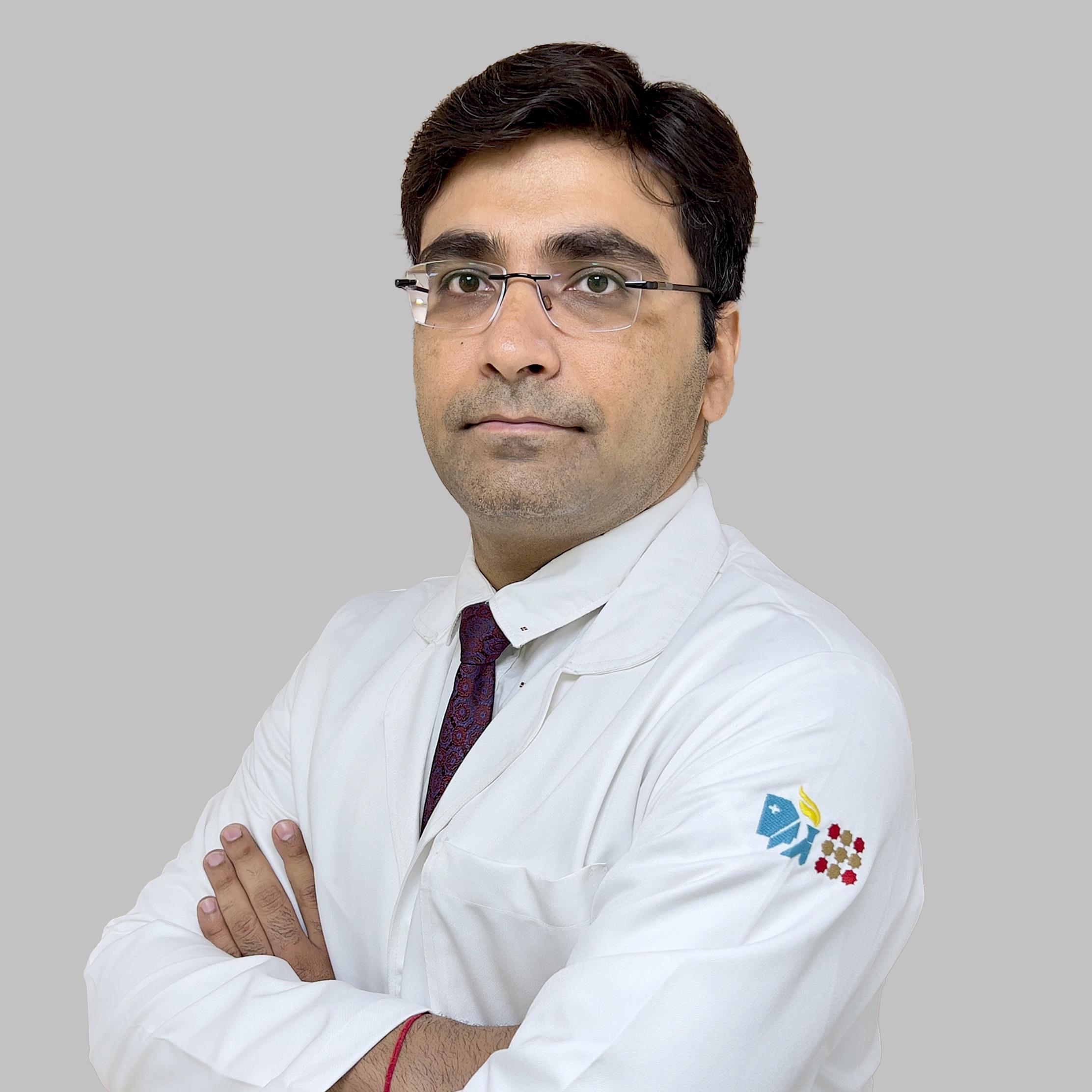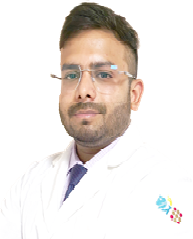Search Result: 2

Dr Abhishek Verma
MD (Respiratory Medicine), PDCC (Interventional Pulmonology)
Registration No
5166939
Language
English, हिंदी

5 years experience overall

Kanpur Road , Lucknow
MON- SAT(09:00 AM-05:00 PM)

Dr Shubham Agarwal
MBBS (Gold Medal) MD, DM (Pulmonary, Critical Care and Sleep Medicine) DNB (Medicine) , MRCP (UK), EDARM,
Registration No
6288189
Language
English

4 years experience overall

Kanpur Road , Lucknow
MON- SAT, MON- SAT(09:00 AM-05:00 PM)
Frequently Asked Questions for Pulmonologists in Lucknow
Pulmonary diseases can be managed and treated, but complete cures may not be possible in all cases. Treatment focuses on symptom relief, improving lung function, and preventing further damage. Early diagnosis and appropriate medical intervention play a crucial role in curing pulmonary diseases effectively.
Yes, lungs have the ability to heal naturally. They can regenerate and repair damaged tissue, especially after quitting smoking or reducing exposure to harmful substances. However, severe or chronic damage may require medical intervention and treatment.
Yes, a pulmonologist treats asthma, especially when the symptoms have a more severe cause. If your asthma symptoms are related to allergies, you may consider seeing an allergist. Respiratory therapists also play a significant role in managing and controlling asthma symptoms, offering immediate care in emergency settings.
A pediatric pulmonologist is a specialized doctor who treats children with breathing and lung issues. They assess lung health, diagnose problems, and create treatment plans to manage symptoms and enhance quality of life for children with breathing difficulties.
Pulmonary problems refer to a range of diseases affecting the airways and air sacs in the lungs. Some of them are asthma, chronic obstructive pulmonary disease (COPD), chronic bronchitis, emphysema, acute bronchitis, cystic fibrosis, pneumonia, tuberculosis, pulmonary edema, lung cancer, acute respiratory distress syndrome (ARDS), and pneumoconiosis.
Yes. Pulmonologists, as specialized physicians, are trained to diagnose and treat various respiratory conditions, including cough.
A pneumologist and a pulmonologist are both medical specialists who diagnose and treat conditions related to the respiratory system. The terms can be used interchangeably, as they refer to physicians specializing in diseases and disorders of the lungs and airways.
Cardiologists specialize in the heart, while pulmonologists specialize in the lungs. They work together for better overall health, especially in cases involving conditions like pulmonary hypertension where both organs are affected.
No, pulmonologists do not typically perform surgery. They specialize in the diagnosis and treatment of lung and respiratory conditions, but surgical procedures are usually performed by thoracic surgeons or other surgical specialists.
A pulmonologist diagnoses and treats respiratory diseases. They may specialize in areas like critical care, asthma, or sleep medicine, and can focus on specific populations such as children or the elderly.
You may have to see a pulmonologist for respiratory symptoms like persistent cough, chest pain, wheezing, dizziness, trouble breathing, severe fatigue, difficult-to-control asthma, or recurrent bronchitis/colds.
When seeing a pulmonologist, expect to fill out a medical history form, undergo a physical examination, and discuss your symptoms. Tests like blood analysis, imaging scans, and pulmonary function tests may be ordered for diagnosis and treatment. Follow-up appointments may be necessary for long-term management, including tests to monitor treatment effectiveness.
A pulmonologist is a medical specialist who diagnoses and treats respiratory system diseases, including the lungs and other organs involved in breathing. They provide specialized care when symptoms persist or worsen despite initial treatment by a primary care doctor.
Related Treatments in Lucknow
Other Specialities in Lucknow
- Best Urologist in Lucknow
- Best Pulmonologist in Lucknow
- Best General Physician in Lucknow
- Best Endocrinologist in Lucknow
- Best Cardiologist in Lucknow
- Best Oncologist in Lucknow
- Best Radiologist in Lucknow
- Best Orthopedics in Lucknow
- Best Hepatologist in Lucknow
- Best Gynecologist in Lucknow
- Best Dermatologist in Lucknow
- Best Gastroenterologist in Lucknow
- Best Psychologist in Lucknow
- Best Ent Specialist in Lucknow
- Best Nephrologist in Lucknow
- Best Rheumatologist in Lucknow
- Best Diabetologist in Lucknow
- Best Psychiatrist in Lucknow
- Best Neonatologist in Lucknow
- Best Dentist in Lucknow
- Best Dietitian in Lucknow
- Best Haematologist in Lucknow
- Best Pediatrics in Lucknow
- Best General Surgeon in Lucknow
Top Hospitals in India
- Hospitals in Ahmedabad
- Hospitals in Bangalore
- Hospitals in Bhubaneswar
- Hospitals in Bilaspur
- Hospitals in Chennai
- Hospitals in Delhi
- Hospitals in Guwahati
- Hospitals in Hyderabad
- Hospitals in Indore
- Hospitals in Kolkata
- Hospitals in Madurai
- Hospitals in Mumbai
- Hospitals in Mysore
- Hospitals in Nashik
- Hospitals in Noida
- Hospitals in Visakhapatnam
- Hospitals in Lucknow
- Hospitals in Bhopal
- Hospitals in Karur
- Hospitals in Kochi
- Hospitals in Nellore
- Hospitals in Trichy
- Hospitals in Kakinada
© Copyright 2024. Apollo Hospitals Group. All Rights Reserved.
 08429021972
Book Appointment
08429021972
Book Appointment






 Call Now
Call Now

